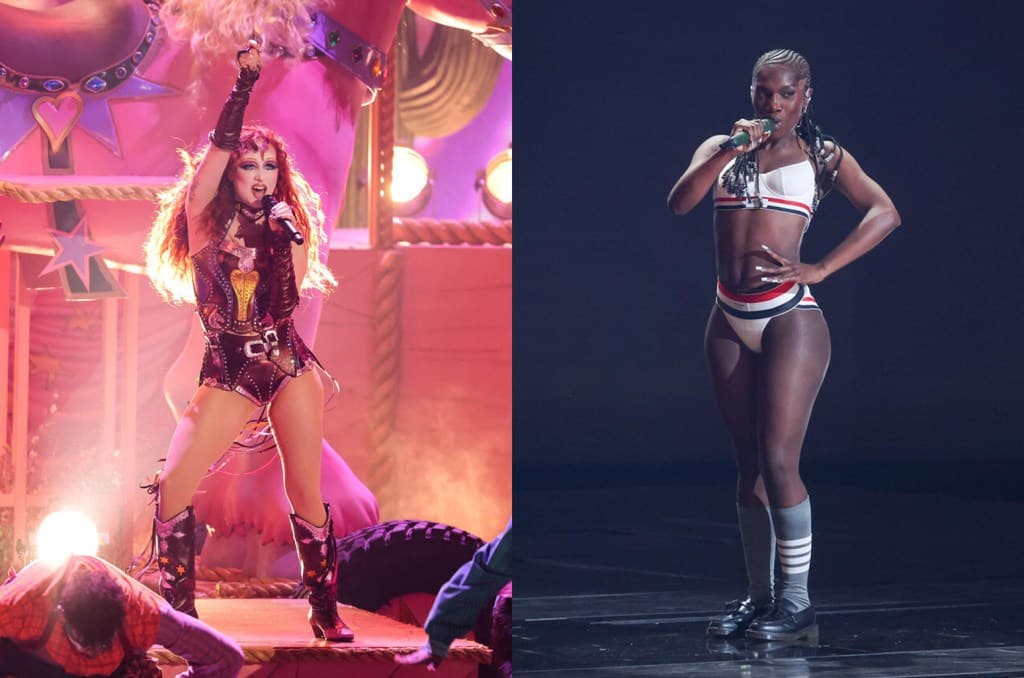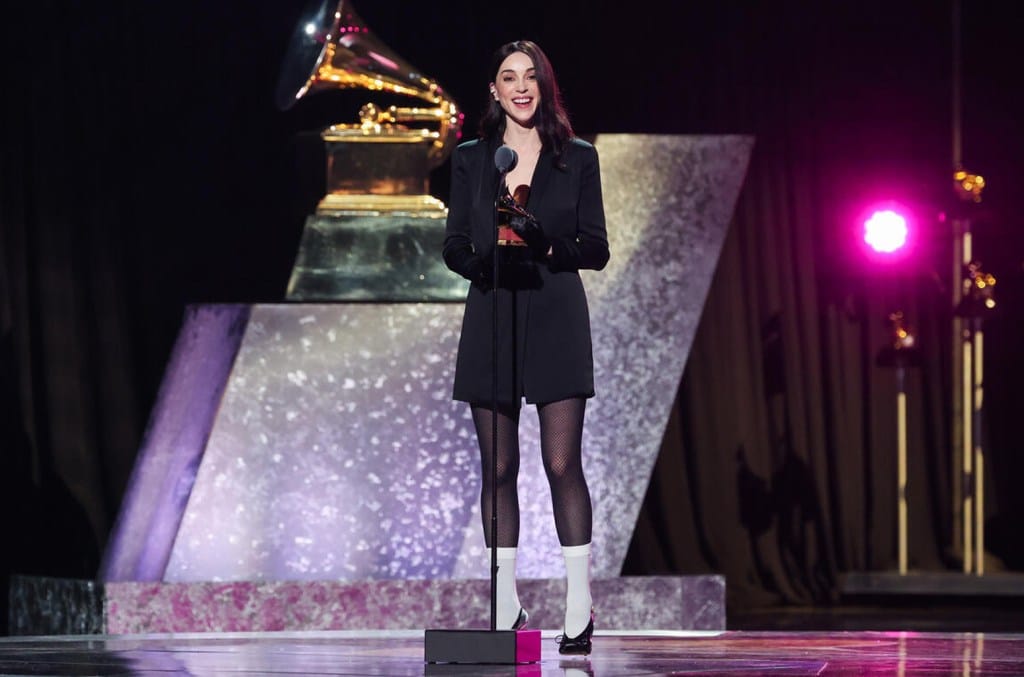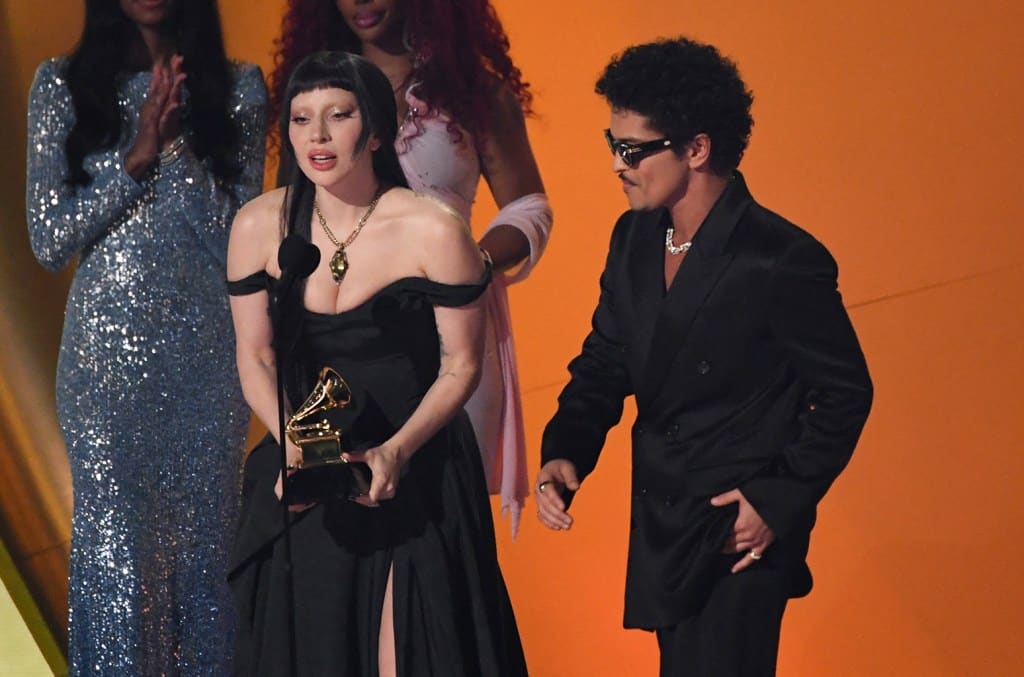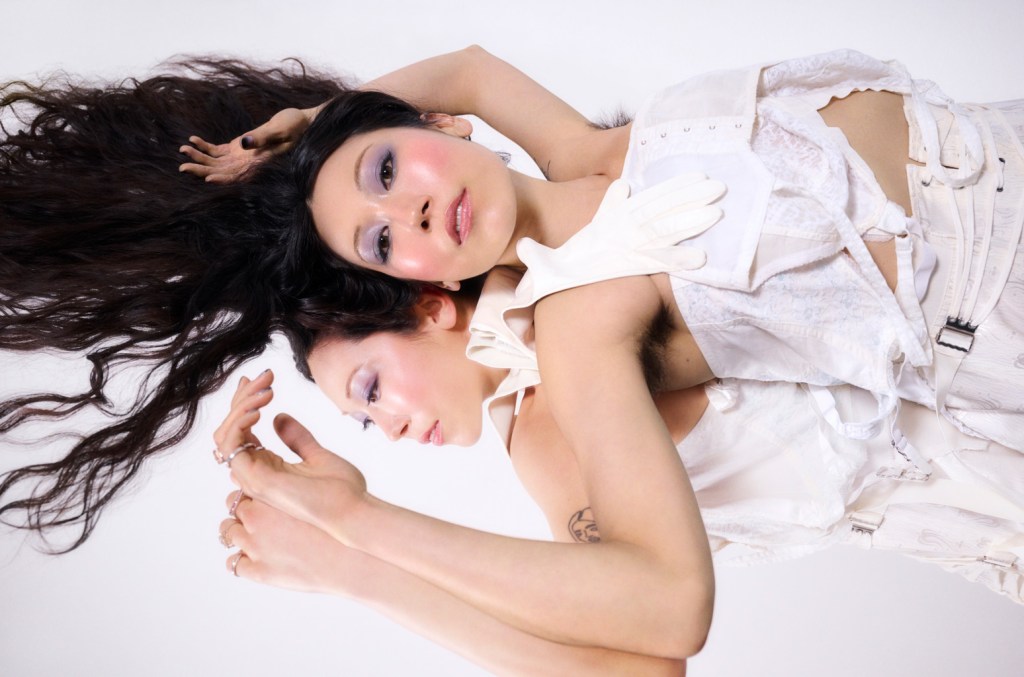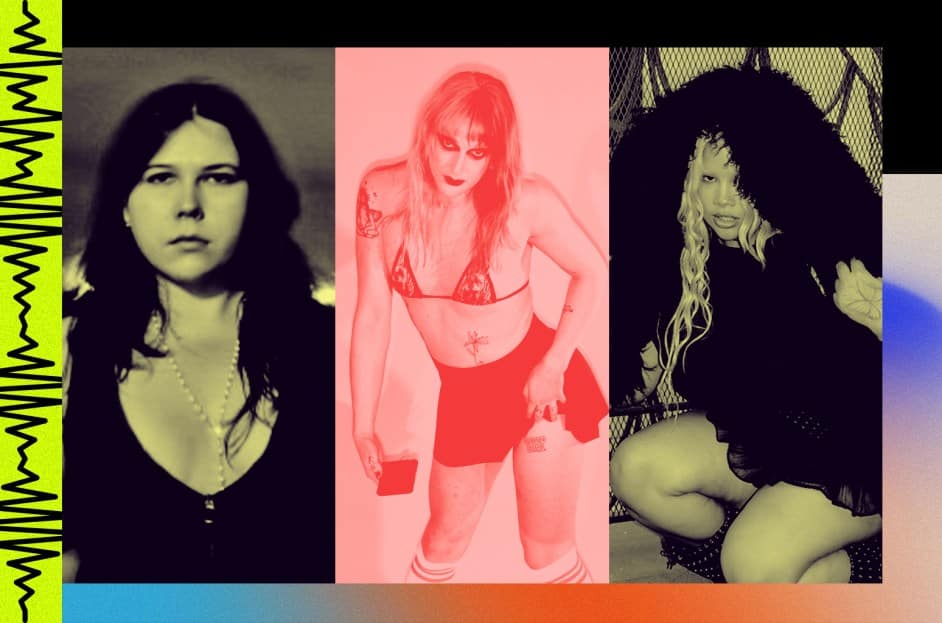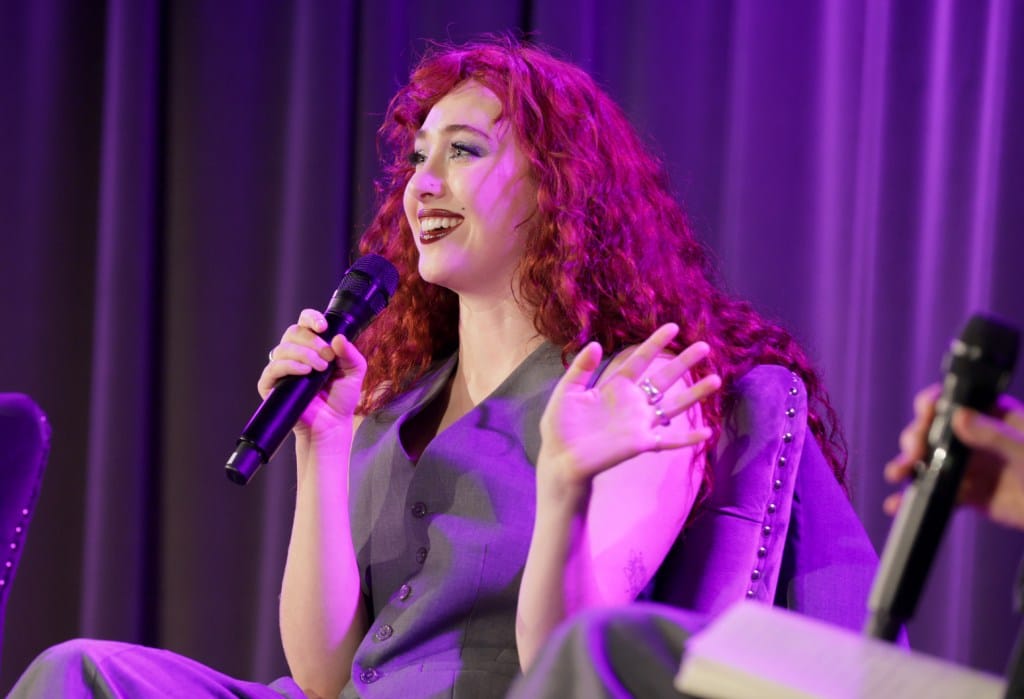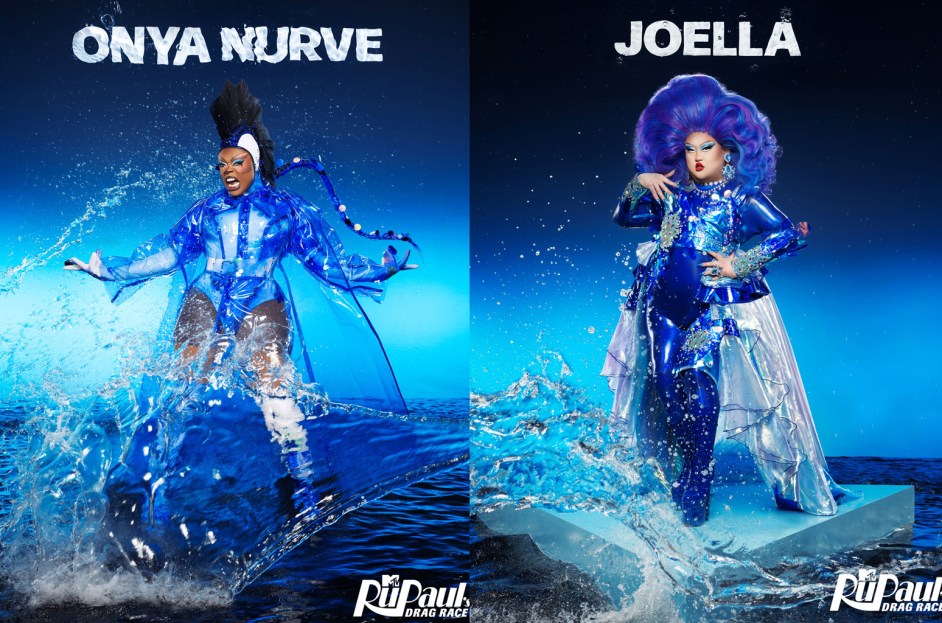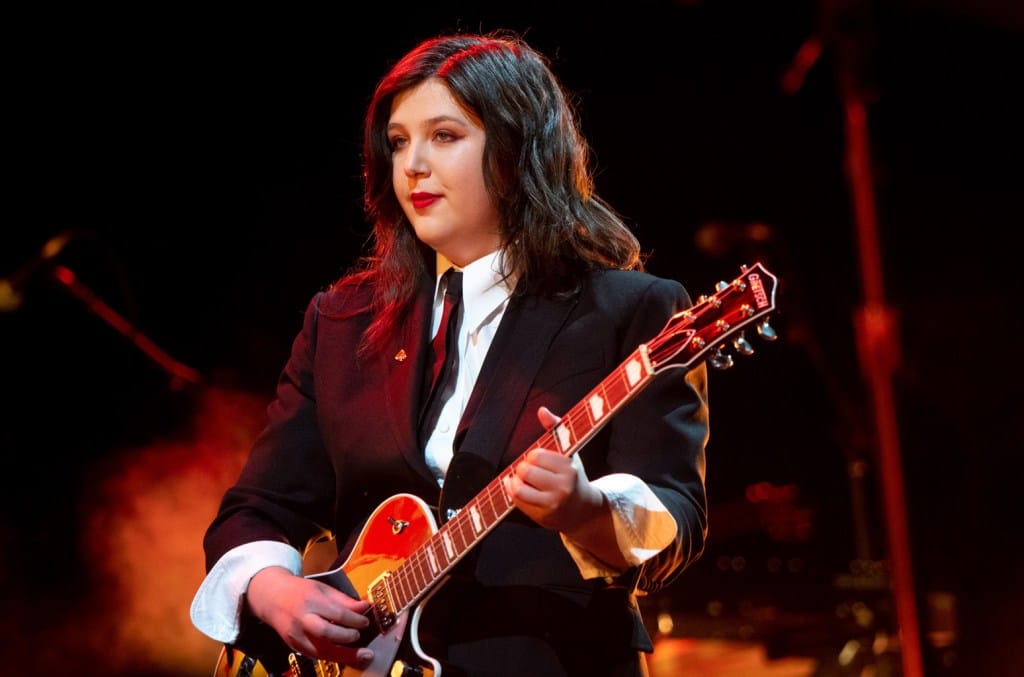Pride
Page: 16
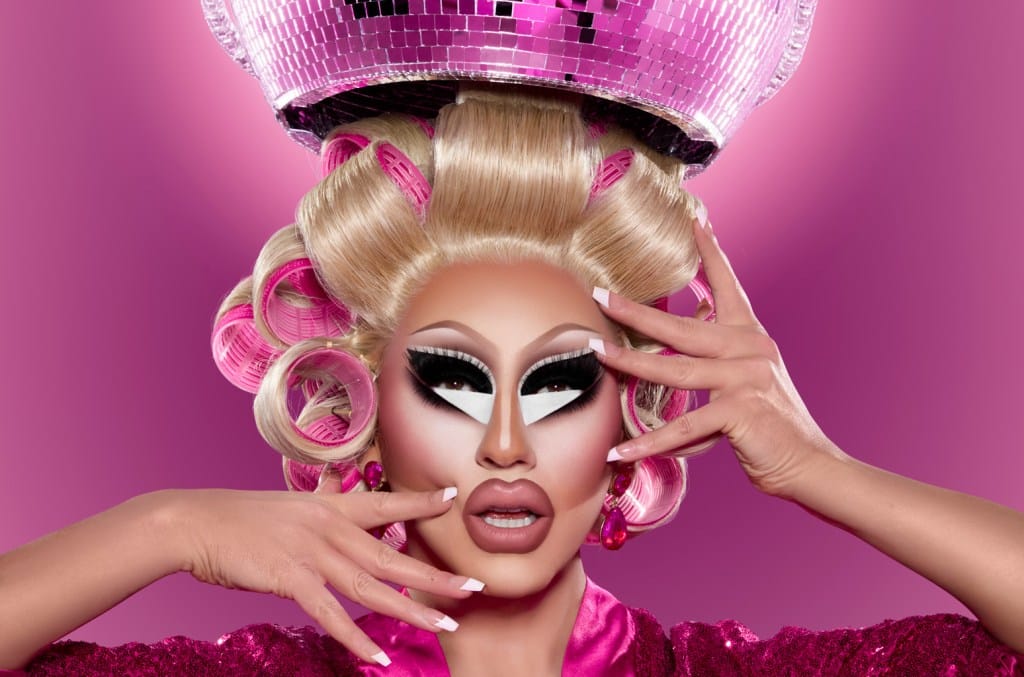
For anyone looking to escape the onslaught of terrible news in 2025, drag superstar Trixie Mattel has an offer: Why not come dance with a drag queen for a while?
On Tuesday (Feb. 4), Mattel announced her upcoming North American tour for her live DJ show Solid Pink Disco: Blonde Edition. Set to start on April 5 in Toronto, the 16-date trek will take the Drag Race All Stars winner through Atlanta, Denver, Pittsburgh, Los Angeles, Chicago and more cities, before closing out on June 3 in Washington, D.C.
Mattel’s new rendition of her live DJ sets will feature an array of other artists across different dates, including DJ Mateo Segade, Daya, Rebecca Black, Shea Couleé, Snow Wife, Vincint, Zolita and more special guests.
Trending on Billboard
“We need something to feel good about right now, and what better way than to put on your brightest pink and your blondest wig and dance surrounded by homosexuals?” Mattel tells Billboard in an exclusive statement shared with the news. “This Solid Pink Disco is going to be better and gayer than ever before.”
Mattel began performing DJ sets live after she discovered her passion for the artform during the pandemic. She revealed in a 2024 episode of her podcast The Bald and the Beautiful that she had decided to take a break from her career as a recording artist because she felt the “glass ceiling” of the music industry weighing on her.
“I recently have been taking a break from music because I feel the glass ceiling so fiercely,” she told Monét X Change in the episode. “We’re only ever taken seriously about one month a year. And it kind of takes the wind out of your sails. I want to make music, but if I don’t have this wig on, no one will pay attention. But because I have this wig on, no one will take it seriously.”
Tickets for Mattel’s Solid Pink Disco: Blonde Edition tour go on-sale starting Friday, Feb. 7 at 10 a.m. local time on the star’s touring website. Check out the full list of dates below:
Solid Pink Disco: Blonde Edition tour dates:
Saturday, April 5 – Toronto – History
Sunday, April 6 – Austin, Texas. – ACL Live at The Moody Theater
Thursday, April 17 – San Antonio – Boeing Center at Tech Port
Friday, April 18 – Brooklyn, N.Y. – Brooklyn Paramount
Saturday, April 19 – Atlanta – The Eastern
Thursday, May 1 – Denver – The Ogden Theatre
Friday, May 2 – Montreal – MTELUS
Saturday, May 3 – Pittsburgh – Stage AE
Thursday, May 8 – Los Angeles – Hollywood Palladium
Friday, May 9 – Oakland, Calif. – Fox Theater
Saturday, May 10 – Salt Lake City – Rockwell at The Complex
Thursday, May 15 – San Diego – Observatory North Park
Thursday, May 29 – Chicago – The Salt Shed
Friday, May 30 – Minneapolis – First Avenue
Saturday, May 31 – Nashville, Tenn. – The Pinnacle
Tuesday, June 3 – Washington, D.C. – Echostage
When accepting the award for best pop duo/group performance at the 2025 Grammys on Sunday night (Feb. 2), Lady Gaga — the pioneering pop performer known across the globe for her unflinching advocacy on behalf of the LGBTQ+ community — shared her spotlight with a community in desperate need of affirmation.
“Trans people are not invisible. Trans people deserve love,” she declared. Cameras cut into the audience, showing nods of approval and acknowledgement from music’s biggest names, including Billie Eilish, Beyoncé and Charli XCX. “The queer community deserves to be lifted up. Music is love.”
Trending on Billboard
In almost any other year, Gaga’s declaration would be seen simply as another example of the singer’s ongoing support for the community that helped give her the platform she occupies today. But in 2025, her statement was just one of a chorus of voices — predominantly queer ones — reminding the audience at home that for some communities, existence itself is currently at stake.
The 2025 Grammys received plenty of attention this year for an undeniably queer slate of nominees and performers, and Sunday’s ceremony proved to be one of catharsis and joy for the community. Queer artists stepped up to the plate to combat the onslaught of anti-LGBTQ+ rhetoric and legislation being spread across the United States and the world at large with defiant joy and unparalleled affinity.
That outpouring of love and support could not come at a more crucial moment; in the 14 days since he took office for a second term, President Donald Trump has effectively codified his backwards, bigoted views on LGBTQ+ people into a series of regressive executive actions.
He denied the existence of trans, non-binary and intersex people by declaring that the United States government will only recognize two sexes. He revoked federal mandates for workplace protections that prevent marginalized communities — including queer and trans folks — from being discriminated against. He attempted to ban trans people from serving in the U.S. military again. He ordered to end any and all federal funding for gender-affirming care. He targeted trans students and schools that support them. His actions led the Centers for Disease Control and Prevention to temporarily remove online health resources for the LGBTQ+ community. Emboldened right-wing lawmakers around the country have announced their desire to have the Supreme Court reverse their landmark ruling legalizing same-sex marriage.
To put it plainly: The current right-wing political ecosystem, led by Trump’s administration, is attempting to erase the LGBTQ+ community from participation in public life, starting with trans and gender-diverse people.
Before the Grammys began in earnest on Sunday, artists were already calling out the ongoing attacks on trans people. Speaking to GLAAD on the red carpet, soon-to-be best new artist winner Chappell Roan laid out, in no uncertain terms, her support for the trans community.
“It’s brutal right now, but trans people have always existed and they will forever exist, and they will never, no matter what happens, take trans joy away,” the singer said. “That has to be protected more than anything, because I would not be here without trans girls. So, just know that pop music is thinking about you and cares about you, and I’m really trying my best to stand up for you in every way I can.”
Roan doubled down on that support later on in the awards show. Despite her breakout hit “Good Luck, Babe!” being nominated across multiple categories at the ceremony (including record and song of the year), the Midwest Princess instead opted to perform her generational LGBTQ+ anthem “Pink Pony Club.” Surrounded by rodeo clowns, kitschy outfits and a giant rose-colored horse, Roan let the crowd accentuate the point of her song with a loud sing-along at its final chorus. Chappell, and the LGBTQ+ community at large, will “keep on dancing,” come what may.
Roan was just one amongst a crowd of LGBTQ+ stars who dominated the awards on Sunday evening. After becoming the second-ever queer Black woman to take home the best rap album award at the ceremony (Cardi B made history with her win in 2019 for Invasion of Privacy), breakout star Doechii dedicated her win to all the Black girls watching at home, promising them that no president could take their shine from them, even if our current one has his sights set on eliminating DEI programs across the federal government.
“Don’t allow anybody to project any stereotypes on you, that tell you that you can’t be here, that you’re too dark or that you’re not smart enough or that you’re too dramatic or you’re too loud,” she said. “You’re exactly who you need to be to be right where you are.” Earlier in the evening, Doechii made sure to call for the industry to bring “more gay artists” into the fold in the coming years.
In a backstage interview after her three rock category wins, St. Vincent added to the voices calling for greater LGBTQ+ representation across the board. “There have always been queer people in the history of the world, and especially in music,” she told a reporter. “There’s a bunch of queer people being celebrated this year. And that’s great, of course it’s great — empathy and humanity, let’s go.”
That’s not to say that the Grammys had a perfect run in 2025. As in years past, the annual ceremony had a distinct lack of trans artists present amongst the nominees — though writer/producer Ariel Loh, the first openly trans Asian-American woman to win a Grammy (in the Harry Belafonte best song for social change category, for Iman Jordan’s “Deliver”), made sure to use her limited screen time properly, calling on the audience to “protect trans kids.”
Cynics could shrug off the overt queerness of this year’s ceremony as an inconsequential blip in an unprecedentedly dangerous time for the LGBTQ+ community. But data shows that events like the Grammys are more impactful than some critics are willing to admit.
A 2022 study by the Trevor Project showed that nearly 80% of LGBTQ+ youth reported that seeing musicians come out as LGBTQ+ made them feel better about their own identities. Over 70% felt the same way when they saw straight, cisgender celebrities advocate on their behalf. Compare that to the organization’s study from last year showing that 90% of all LGBTQ+ youth surveyed said recent legislative attacks on queer and trans rights had a direct, negative impact on their well-being.
“When LGBTQ+ young people see themselves reflected and celebrated on a global stage like the Grammys, it sends a powerful message that they belong, their experiences matter, and that they can succeed in spaces as their true, authentic selves,” said Kevin Wong, the Trevor Project’s senior vice president of marketing, communications and content, in a statement shared with Billboard. “Queer visibility in the media also plays a key role in reducing stigma and combating stereotypes surrounding LGBTQ+ people. We are a vibrant and creative community, and we deserve to have our voices heard, our accomplishments celebrated, and our existence validated.”
With unequivocal bigotry working its way into mainstream conversations of queerness and transness once again, LGBTQ+ artists made certain on Sunday night that queer and trans kids watching at home knew that what’s happening now is not normal, nor should it be accepted as such. They reminded the audience watching that it is everyone’s responsibility to fight back against the rising tide of transphobia.
And to lawmakers aiming to relegate LGBTQ+ people to the outer margins of society, those same artists offered an explicit message underlined only by their success at the annual ceremony: We’re not going anywhere.
It’s common practice for artists to thank their families when winning major awards. But, as rock star St. Vincent proved at the 2025 Grammys on Sunday (Feb. 2), it’s rare to see artists reveal that they’re married with kids during a massive event.
During the evening’s pre-telecast awards, Annie Clark (St. Vincent’s offstage name) took home the best rock song trophy for her 2024 single “Broken Man.” During her acceptance speech, the singer surprised fans and audience members by offering a special shout-out to “my beautiful wife Leah [and] our beautiful daughter.” In a later acceptance speech for best alternative music album for her 2024 LP All Born Screaming, Clark thanked her family for a second time.
Clark is known for remaining tight-lipped about her personal life, a fact that she acknowledged in a backstage interview after winning her award. When a reporter from the Associated Press said that they were “totally unaware” of Clark’s marital status, the singer jumped in to add that “most people were,” revealing that she and her spouse have made a concerted effort to keep their relationship out of the public eye.
Trending on Billboard
“She’s young, we’ve kept it under wraps,” she said, before quickly clarifying her point with a laugh. “The child is young, just to be clear, the child is young, not the wife!” The singer added that she and her family had plans to celebrate her victory with her sisters, but that Clark intended “to be in bed by 10” that night.
Elsewhere in her backstage interviews, Clark reflected on the LGBTQ+ representation at the annual show and across the industry, remarking that queer people existing in the industry and the world at large is not news. “There have always been queer people in the history of the world, and especially in music,” she said. “There’s a bunch of queer people being celebrated this year. And that’s great, of course it’s great — empathy and humanity, let’s go.”
For Billboard‘s 2024 Pride cover story, the singer opened up about the history of queer people in the music business, while pointing out the importance of LGBTQ+ artists remaining on the cutting edge of culture. “There have been plenty of queer people in music. Even if the culture was saying no, there were always queer people in the arts. Please. We have built this,” she said at the time. “If you’re safe for the TV screen, you also invite an aspect of grift [from the outside world]. Which … I raise an eyebrow at.”
The All Born Screaming singer took home three trophies at Sunday night’s ceremony — best rock song, best alternative music album and best alternative music performance for “Flea.” Clark was nominated in the best rock performance category, but ultimately lost out to the Beatles’ AI-assisted track “Now and Then.”
Lady Gaga and Bruno Mars added to their trophy collection at the 2025 Grammy Awards Sunday (Feb. 2) when they won best pop duo/group performance for their Billboard Hot 100 chart-topping song “Die With a Smile.” Gaga and Mars shared the stage and rejoiced after winning over Beyonce and Post Malone, Gracie Abrams and Taylor […]
The 2025 Grammys are nearly here! With a record number of LGBTQ+ nominees at Sunday’s show, take some time to get ahead of next year’s ceremony with these new tracks from your favorite queer artists. Billboard Pride is proud to present the latest edition of Queer Jams of the Week, our roundup of some of the best new music releases from LGBTQ+ artists.
Explore
See latest videos, charts and news
See latest videos, charts and news
From Sasami’s excellent collaboration with Clairo to Julien Baker and Torres’ new ballad, check out just a few of our favorite releases from this week below:
Trending on Billboard
Sasami ft. Clairo, “In Love With a Memory”
The best collaborations are the ones that put two artists together and push both of them to create a new sound within the context of a single song. That’s exactly what Sasami and Clairo accomplish on “In Love With a Memory,” the gorgeous new track off the former’s forthcoming album Blood on the Silver Screen. From the jump, the vibe of “Memory” is immediately pared down from the moody electropop Sasami has become known for, while also providing a jolt of energy to Clairo’s softer offerings. The result is a reflective mid-tempo pop track that sees both artists expertly blending their vocals to make a cinematic portrait of a relationship at its end.
Julien Baker & Torres, “Sylvia”
Speaking of successful collaborations, Julien Baker and Torres are back with yet another excellent example of their combined power. Where “Sugar in the Tank” felt like something of a thesis statement for their forthcoming country album, “Sylvia” leans into the pair’s respective singer-songwriter roots, as they sing an ode to Torres’ canine companion. Still sticking to their folksy, rooted sound, Baker and Torres manage to create something both nostalgic and fresh with this beautiful ballad.
Cat Burns, “Girls!”
Sometimes, you just have to say exactly what it is you’re singing about in the title of a song. UK pop artist Cat Burns has already made plenty of waves for her frank songwriting and buttery vocals, but “Girls!” adds even more dimensions to the singer’s artistry. This bubbly new track sees Burns sharing her admiration for all things female — including “different energies,” the spectrum of “masc and femininity” — all while letting her sound explode into a burst of funky guitars and cascading synths on the delirious post-chorus.
Skaiwater, “Pop”
For anyone looking for a pseudo-pop rap alternative to Travis Scott this week, may we humbly recommend this delectable new single from Skaiwater. “Pop” feels like a distillation of all the facets that have make the rising artist a critical darling into one 3 minute package. Disjointed beats manage to sync up perfectly with their digitized voice, as the rapper narrates the tale of a relationship that just cannot possibly work out. Skaiwater makes “Pop” sound like a stream-of-consciousness confession happening in real time, but just one listen tells you that their attention to every detail of their sound is what makes a record like this so deeply fascinating.
Miya Folick, “Fist”
Penting up emotions tends to lead to an explosion down the line. “Fist,” the latest track off Miya Folick’s upcoming album Erotica Veronica, takes that idea and translates it as literally as possible into music. Starting out with a simple acoustic guitar and soft vocals, Folick lets her partner know that all is not what it seems from the opening line: “I’ve been cooking dinner/ Hoping you’ll forgive me for not wanting to swallow you.” As the intesity builds, so does the instrumentation — guitars are plugged in, drums are added and eventually, there are no more words to describe how Folick is feeling. Only a guttural scream in the song’s last 90 seconds can encapsulate the whirlwind of emotion from this cathartic banger.
Maddie Zahm, “Sheets”
Maddie Zahm is ready to burn it all down on her latest single. A fiery bassline and small chorus of backup singers bring some weight to “Sheets,” but no production elements can evoke as strong an image as Zahm’s growling voice as she confronts her ex about how quickly they’ve moved on. The party is over and Zahm is ready to say it exactly how it is, bringing a “f–k around and find out” attitude we’ve yet to see from her. If you ever hurt someone bad enough to get them to write the phrase “did you tell her how you’ll kiss her ’til a new b–ch has you on your knees,” maybe take a moment to reflect on your choices.
Dreamer Isioma, “Did You Ever Care” / “Dead End”
Nigerian-American singer-songwriter Dreamer Isioma has always been interested in creating an aesthetic that no one has ever seen before with their performance. They’ve never been more successful at that feat than on their pair of new singles “Did You Ever Care” and “Dead End.” Swinging wildly between gothic pop and angsty rock, Isioma spends two songs painting a portrait of unrequited obsession followed by painful realization, all rendered through the prism of their otherworldly voice. If you haven’t managed to board the Dreamer Isioma hype train, now is an ideal time for you to get on board.
Charlie Houston, Big After I Die
Want to get in on the groud floor with a very talented new artist? Looking for good songwriting and killer production? Need something silly to cut some of the darker parts of being alive right now? Charlie Houston checks all of those boxes and then some on her debut album Big After I Die. Over the course of 9 songs, the singer-songwriter tackles everything from love that almost makes you scared of yourself (“Lighter”) to a love for organizational charts (“Slut for Excel”), Houston brings a lifetime of observations and idiosyncrasies into this winking LP, and it’s well worth every single one of its 30 minutes.
Check out all of our picks below on Billboard’s Queer Jams of the Week playlist:
01/30/2025
After a banner year for queer pop music in 2024, Billboard takes a look at which LGBTQ+ artists fans should keep an eye on this year.
01/30/2025
As fans and artists alike gear up for this Sunday’s Grammys, Chappell Roan is taking a beat to share some gratitude for her fans. In a post to her Instagram on Wednesday (Jan. 29), Roan shared a series of selfies while writing a lengthy note of appreciation to her fans. “Good morning booboos. It’s Grammy […]
01/28/2025
The contestants offered their best compilation album commercial impressions in this week’s challenge. See which queens reached the top of the charts, and which ones fizzled out.
01/28/2025
In need of some new music from your favorite LGBTQ+ artists? Allow us to help: Billboard Pride is proud to present the latest edition of Queer Jams of the Week, our roundup of some of the best new music releases from LGBTQ artists.
Explore
See latest videos, charts and news
See latest videos, charts and news
From Shygirl’s stunning new collaboration to Kesha’s gorgeous new ballad, check out just a few of our favorite releases from this week below:
Shygirl feat. Isabella Lovestory & PinkPanthress, “True Religion”
Since experiencing a new level of cultural breakthrough in 2024 thanks to her opening slot on Charli XCX & Troye Sivan’s Sweat Tour, UK DJ Shygirl is ready to hook you for good with her latest single. “True Religion” boasts everything fans of Shygirl have come to hope for from her music — a singularly catchy hook (don’t be shocked if you randomly start singing “webcam, webcam, webcam girl” to yourself this weekend), impeccably-chosen guest stars (both Lovestory and PinkPanthress thrive on this bouncing, laid-back track) and a beat that you cannot shake. If “True Religion” doesn’t make you believe in the power of Shygirl, then we’re not sure what will.
Trending on Billboard
Kesha, “Dear Me”
For her contribution to the new documentary Diane Warren: Relentless, Kesha decided to strip back the artifice and sing from the heart. The result is “Dear Me,” a Warren-penned, Guy Roche-produced ballad where Kesha looks back on her younger self and offers some salient advice — primarily, to know that she can get through whatever pain comes her way. It’s no surprise that Kesha sounds as good as she does here; it is surprising, though, to get such a poignant song in a week when so many of us need to hear this.
Lord Huron feat. Kristen Stewart, “Who Laughs Last”
If there’s a rule of thumb for 2025, it’s expect the unexpected. Lord Huron, the indie-rock group slowly gaining steam over the last couple yeas, took that advice to heart when they teamed up with actress, queer icon and now songstress Kristen Stewart for their new single “Who Laughs Last.” Stewart may not sing on the actual track, but her spoken word verses bring an air of mystique and prestige to this certified rock banger, marking one of the most gloriously left-field collaborations we’ve heard in a minute.
Nessa Barrett, “Does God Cry?”
If you’ve been looking for some Aftercare since alt-pop star Nessa Barrett’s stunning 2024 album of the same name, then we have some good news for you. With her new track “Does God Cry?” off the forthcoming deluxe edition of the LP, Barrett delivers a heart-rending, ambient pop single that poses bigger questions through bigger sounds. More to the point, the track takes the dark sonics of her breakout album and twists them into something new and fascinating — as winning a formula for any deluxe track as we’ve seen.
Sophie Powers, “Goals”
Alright, we’ve all had a rough week, so let’s end this list with something unabashedly fun. Rising pop singer Sophie Powers’ latest track “Goals” immediately comes across as 2007 Avril Lavigne-meets-Charli XCX’s Brat, as Sophie snidely declares that she is the bar her haters just can’t reach. A chant-along chorus, glitchy production and gloriously spunky attitude make Powers’ “Goals” a must-listen for anyone who needs to unplug after an otherwise hard few days.
Check out all of our picks below on Billboard’s Queer Jams of the Week playlist:
In an executive order issued on his first day back in office, President Donald Trump rolled back protections for the transgender community and declared that the United States would no longer provide any federal funds to “promote gender ideology.” If it’s a fight the president wants on trans rights, then Lucy Dacus is ready to square up.
In a post to her X account on Wendesday (Jan. 22), the singer-songwriter told her fans to share GoFundMe pages for trans people looking to pay for gender-affirming surgeries, promising that she would donate $10,000 as a means of helping. “if trans people wanna comment surgery gofundmes, I’m gonna give away 10k in $500 increments until it’s gone,” she wrote. “if other people wanna scroll through and make donations, please do.”
The post, which has since earned more than 300 replies, ended with a stark message from the Boygenius singer about the future for trans Americans under a second Trump presidency. “the government will never be the source of our validation or protection,” she wrote. “we have to do it ourselves.”
Trump’s executive order (titled “Defending Women From Gender Ideology Extremism and Restoring Biological Truth to the Federal Government”) makes it the official policy of the United States that there are only two sexes, while also eliminating any and all federal funding for gender-affirming health care.
The executive order comes despite calls from established medical organizations — including the American Medical Association, the American Academy of Pediatrics, the American Psychological Association and the Endocrine Society — for policies aimed at limiting access to gender-affirming care to stop. Additionally, the American Medical Association continues to acknowledge that gender identity and sexual orientation both exist on a spectrum rather than as a binary.
LGBTQ+ advocacy organization Lambda Legal already announced that they plan to challenge Trump’s executive order in court, saying “the impact of these executive actions will be devastating — stripping away health care access, weakening workplace protections from abuse, inviting exclusion and harassment of vulnerable school children, and giving a green light to discrimination throughout public life.”
Meanwhile, Dacus is currently promoting her forthcoming new album, Forever Is a Feeling. Last week, she debuted two new songs, “Limerence” and “Ankles,” while debuting the latter during a performance on The Tonight Show Starring Jimmy Fallon.

 State Champ Radio
State Champ Radio 